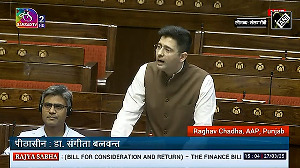They were certainly creative geniuses. But what was the common trait in Albert Einstein and Isaac Newton? Well, both had autism.
A leading psychiatrist at Trinity College in Dublin has claimed that both Einstein and Newton displayed signs of autism spectrum disorders, including Asperger syndrome, which were the same as those associated with creative genius.
Einstein, who is credited with developing the theory of relativity, and Newton, who discovered the laws of gravity, had those traits to varying degrees, according to Professor Michael Fitzgerald.
In fact, Newton, he said, was known to work non-stop for three consecutive days without recognising day or night, often forgetting to eat, and Einstein worked in a patent office because he was too disruptive to get a university job.
According to Prof Fitzgerald, other leading figures in the fields of politics, art and literature like Charles de Gaulle, George Orwell, Beethoven, Mozart, Hans Christian Andersen and Immanuel Kant also had autism.
He came to the conclusion after comparing the characteristics of around 1,600 people, he has diagnosed with ASDs and the known biographical details of famous people.
Prof Fitzgerald said the link between ASD's, creativity and genius were caused by common genetic causes.
"Psychiatric disorders can also have positive dimensions. I'm arguing the genes for autism/Asperger's, and creativity are essentially the same. We don't know which genes they are yet or how many there are, but we are talking about multiple genes of small effect. Every case is unique because people have varying numbers of the genes involved.
These produce people who are highly focused, don't fit into the school system, and who often have poor social relationships and eye contact. They can be quite paranoid and oppositional, and usually highly moral and ethical. They can persist with a topic for 20-30 years without being distracted by what other people think. And they can produce in one lifetime the work of three or four other people," The Daily Telegraph quoted Prof Fitzgerald as saying.






 © 2025
© 2025